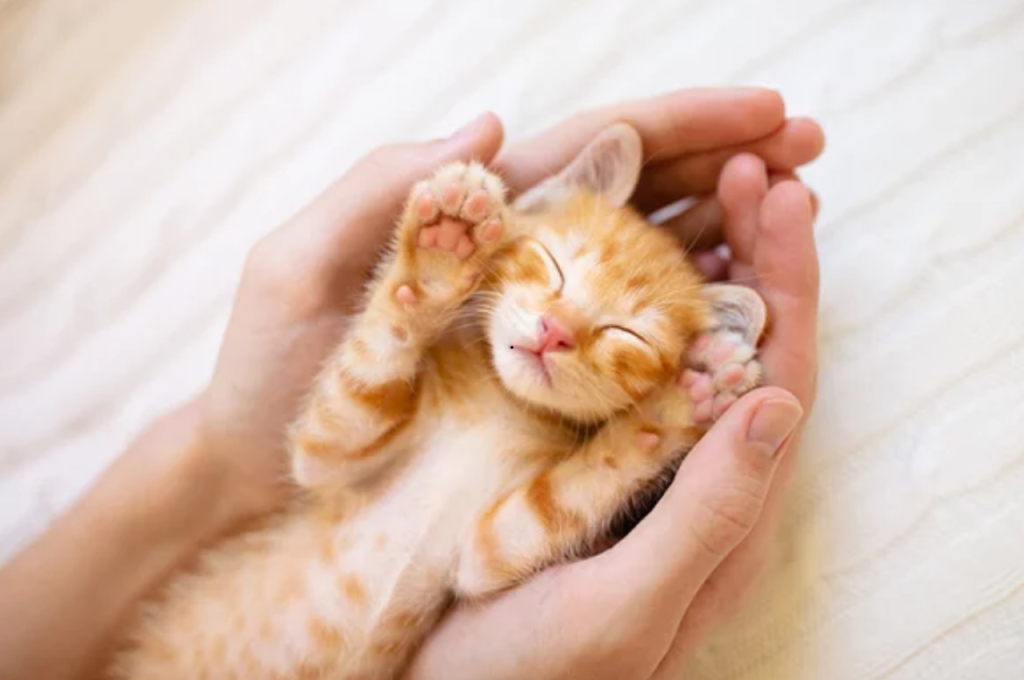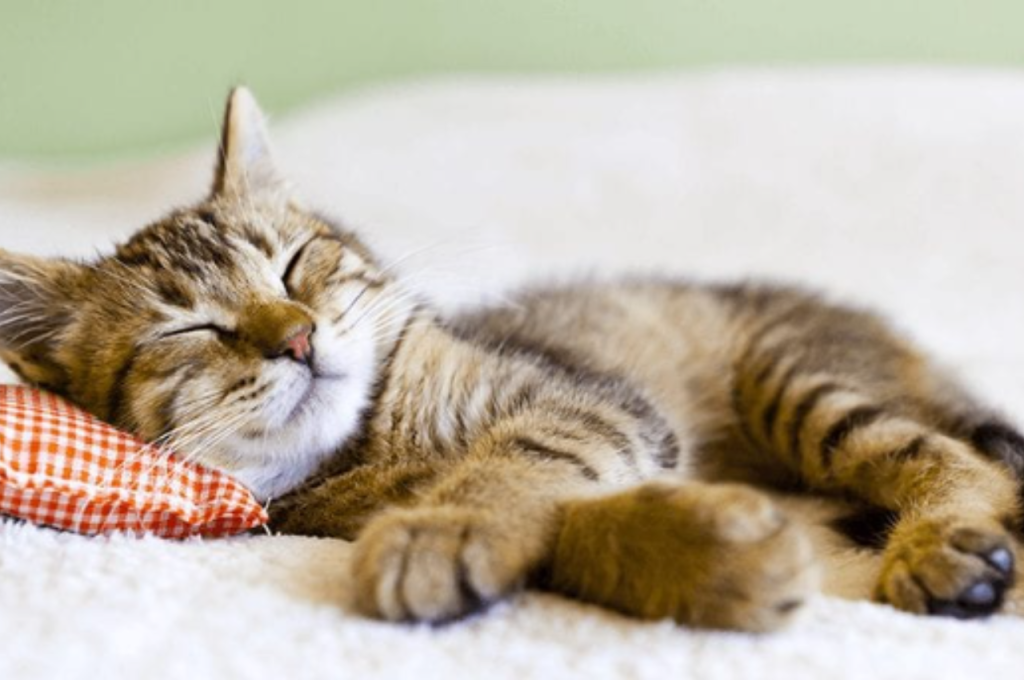To take care of a kitten, provide balanced nutrition and regular veterinary check-ups. Create a safe and stimulating environment for play and exercise, and offer plenty of love and attention.
Introduce the kitten to a litter box and provide toys for mental stimulation. Keep harmful objects out of reach and monitor for signs of illness or distress. Gradually socialize the kitten with other pets and people to ensure a well-adjusted and sociable companion. Proper care and nurturing will help the kitten grow into a healthy and happy adult cat. Now, let’s delve deeper into the specifics of raising a kitten with the love and attention it deserves.
Welcoming Your New Kitten
Welcoming your new kitten is an exciting time for both you and your furry companion. The first day home is crucial for setting the tone for a lifetime of love and care. Start by creating a safe and comfortable space for your kitten with essentials like a cozy bed, litter box, food, and water.

Provide nutritious kitten food to support their growth and schedule a vet visit for a health check-up and vaccinations. Spend time socializing with your kitten through gentle play and handling to build trust and confidence. Regular grooming and establishing routines early on will ensure your kitten grows into a well-adjusted, healthy cat.
First Day Home
On the first day, ensure a quiet, calm environment for your kitten to adjust. Provide food, water, and a cozy bed to help them feel secure.
Creating a Safe Space
Designate a safe area with bedding, toys, and a litter box. Remove any hazards like wires or small objects. Allow your kitten to explore gradually.
Feeding Your Feline Friend
Feeding your kitten the right way is crucial for their growth and development. As a responsible pet owner, it’s important to understand the basics of kitten nutrition, as well as know which foods are safe treats and which ones can be toxic for your furry friend. In this section, we will explore the key aspects of feeding your feline friend, from providing a balanced diet to avoiding harmful foods.
Kitten Nutrition Basics
Ensuring your kitten receives proper nutrition is essential for their overall health and well-being. Here are some key points to consider when it comes to feeding your feline friend:
- A balanced diet: Kittens require a balanced diet that includes a mix of proteins, fats, and carbohydrates. Look for high-quality kitten food that is specifically formulated to meet their nutritional needs.
- Frequent meals: Unlike adult cats, kittens have smaller stomachs and higher energy needs. It’s best to feed them small, frequent meals throughout the day to keep their energy levels stable.
- Proper hydration: Always provide fresh water for your kitten to drink. Hydration is essential for their overall health and helps maintain proper organ function.
- Consult your veterinarian: Your veterinarian can provide personalized guidance on the best diet for your kitten, taking into consideration their age, breed, and any specific health concerns.
Safe Treats and Toxic Foods
While it’s tempting to treat your kitten with table scraps or leftover human food, it’s important to be aware of the foods that can be harmful to their health. Here are some safe treats and toxic foods to keep in mind:
| Safe Treats | Toxic Foods |
Small pieces of cooked chicken or turkeySteamed vegetables like carrots or green beansFreeze-dried meat treatsCommercially available kitten treats | ChocolateCaffeinated beveragesOnions and garlicGrapes and raisins |
Remember, even small amounts of certain foods can be harmful to your kitten’s health. It’s best to stick to treats specifically made for kittens and consult your veterinarian if you have any doubts about the safety of a particular food.
Litter Training
Proper litter training is crucial for your kitten’s well-being and your home’s cleanliness. Here’s a guide to help you navigate through this essential aspect of kitten care.
Choosing The Right Litter Box
When selecting a litter box for your kitten, opt for one that is spacious enough for them to comfortably move around in. Ensure the sides are low to allow easy access for the kitten. The material should be easy to clean and free from any harsh chemicals that could harm your pet.
Training Techniques
Kittens are usually quick learners, but it’s important to be patient and consistent during the training process. Place the litter box in a quiet and accessible location. Encourage your kitten to use the box by placing them in it after meals or naps. Reward good behavior with praise and treats to reinforce the training.
Healthcare for Kittens
To learn how to take care of a kitten, prioritize regular vet visits, vaccinations, and deworming. Ensure a balanced diet, maintain hygiene, and monitor growth. Early healthcare ensures a healthy start and helps prevent common kitten illnesses.

Vaccination Schedule
Kittens require a series of vaccinations to protect them from various diseases.
- 6-8 weeks: First vaccination for feline distemper, calicivirus, and rhinotracheitis.
- 10-12 weeks: Second round of vaccinations.
- 14-16 weeks: Final round of core vaccines.
Common Kitten Ailments
Being aware of common health issues can help in early detection and treatment.
- Fleas: Regularly check and treat for fleas to prevent infestation.
- Respiratory Infections: Keep an eye out for symptoms like sneezing and nasal discharge.
Playtime and Socialization
Playtime and socialization are crucial aspects of raising a happy and healthy kitten. Engaging in interactive play and providing opportunities for socializing with other pets can greatly contribute to their overall well-being. In this section, we will explore the importance of interactive toys and how to facilitate positive interactions with other pets.
Interactive Toys
Kittens are naturally curious and full of energy, making interactive toys an essential part of their playtime routine. These toys not only provide mental stimulation but also encourage physical activity, helping kittens develop their coordination and agility. When choosing interactive toys for your kitten, opt for those that promote hunting and pouncing behaviors. Examples of interactive toys include:
- Feather wands: These toys simulate the movement of prey, enticing your kitten to chase and swat at the feathers.
- Treat-dispensing puzzles: These toys challenge your kitten to figure out how to access the hidden treats, keeping them engaged and mentally sharp.
- Balls with bells: Rolling and batting these balls not only entertains your kitten but also sharpens their reflexes.
Remember to supervise your kitten during playtime and avoid toys with small parts that could be swallowed. Regularly rotate the toys to keep the playtime experience fresh and exciting for your furry friend.
Socializing with Other Pets
Introducing your kitten to other pets in a positive and controlled manner is essential for their social development. Here are some tips to help facilitate successful interactions:
- Gradual introductions: Start by allowing your kitten and the resident pet to sniff each other’s scent through a closed door. Gradually progress to supervised face-to-face meetings, always keeping a close eye on their body language.
- Positive reinforcement: Reward both pets with treats and praise for calm and friendly behavior during their interactions. This helps them associate positive experiences with each other’s presence.
- Separate safe spaces: Ensure each pet has their own designated area where they can retreat to if they feel overwhelmed or need some alone time. This creates a sense of security for both pets.
- Supervised play sessions: Gradually increase the duration of supervised play sessions between your kitten and other pets. Observe their interactions closely and intervene if any signs of aggression or discomfort arise.
Remember, each pet is unique, and the introduction process may vary. Patience and consistency are key to fostering positive relationships between your kitten and other pets in your household.
Grooming and Hygiene
When it comes to taking care of a kitten, grooming and hygiene are essential. Maintaining a regular grooming routine not only helps to keep your kitten clean and healthy but also helps to strengthen the bond between you and your furry friend. Here are some tips on how to groom and maintain your kitten’s hygiene:
Brushing and Bathing
Brushing your kitten’s fur is essential to prevent matting and tangling of hair, which can lead to skin irritation and discomfort. Use a soft-bristled brush or a comb to gently brush your kitten’s fur, starting from the head and working your way down to the tail. Bathing your kitten is not necessary unless your kitten gets into something dirty or smelly. If you do need to give your kitten a bath, use a gentle, cat-specific shampoo and make sure to rinse thoroughly to avoid any residue.
Nail Clipping and Ear Care
Nail clipping is an important part of your kitten’s grooming routine. Use cat-specific nail clippers and make sure not to cut the quick, which is the pink part of the nail that contains blood vessels. If you are unsure, ask your veterinarian to show you how to clip your kitten’s nails properly. Ear care is also important to prevent infections. Use a damp cotton ball to gently clean the outer ear, but do not insert anything into the ear canal as it can cause damage.
Maintaining good grooming and hygiene practices for your kitten not only helps to keep them healthy but also strengthens your bond with your feline friend. By following these tips, you can ensure that your kitten looks, feels, and smells great!
Comfort and Sleep
Kittens need a cozy and secure environment to feel safe and comfortable. Providing the right bedding and understanding their sleep patterns are essential for their well-being.
Choosing a Bed
When selecting a bed for your kitten, opt for a soft, washable, and well-padded bed to ensure their comfort. Ensure the bed is placed in a quiet and warm area away from drafts to promote peaceful sleep.
Sleep Patterns and Training
Understanding your kitten’s sleep patterns is crucial. Kittens typically sleep for 18-20 hours a day, with short bursts of activity. It’s important to establish a consistent bedtime routine to help them learn when it’s time to sleep.
Bonding with Your Kitten
Bonding with your kitten is a crucial part of building a strong and loving relationship. Understanding your kitten’s behavior and building trust and affection is essential in fostering a deep connection with your new furry friend. Here’s how you can bond with your kitten:

Understanding Kitten Behavior
Understanding your kitten’s behavior is the first step in forming a strong bond. Observing their body language, noticing their likes and dislikes, and learning their unique personality traits will help you connect with them on a deeper level.
Building Trust and Affection
Building trust and affection with your kitten requires patience and consistency. Creating a safe and comfortable environment, spending quality time together, and using positive reinforcement will help your kitten feel secure and loved.
Conclusion
In caring for a kitten, love, attention, and proper nutrition are key. Regular vet check-ups and playtime contribute to a healthy, happy pet. Remember, patience and consistency in training will help your kitten grow into a well-adjusted cat.
